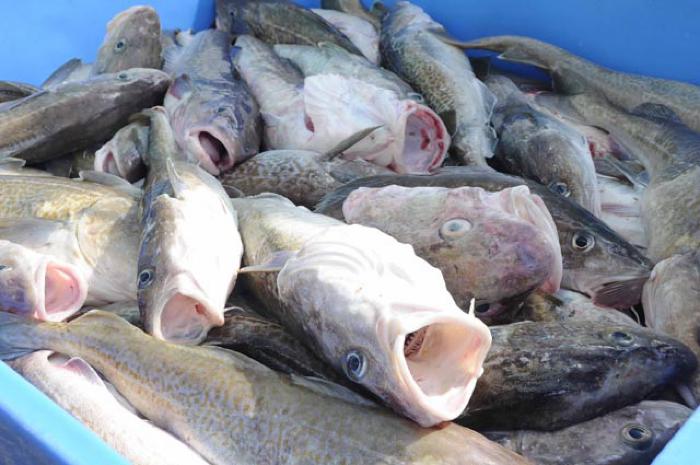Cod — Amutaq

Pacific cod or grey cod (Gadus marcocephalus) is an abundant, bottom-dwelling, round fish found widely in the Gulf of Alaska. These fast-growing, schooling fish are highly mobile. Cod winter in deep waters along the upper slope of the continental shelf, where they spawn. In spring they migrate to shallower nearshore waters, where they feed through the summer. Alutiiq fishermen have long taken advantage of the spring cod migration to harvest fresh food for their families.
At an ancient settlement on outer Uganik Island, archaeologists found evidence of a cod processing camp between 3,000 and 3,800 years old. Here, people harvested, split, and smoked cod in quantities over many years. The site holds a huge accumulation of cod bones as well as numerous cutting tools and quantities of burned rock and charcoal. These finds suggest that people were drying cod to eat later in the year.
In the historic era, traders forced Alutiiq people to fish for spring cod for the Russian American Company. Elderly men, those who could no longer hunt effectively, were assigned this task. Each man had to procure a quota of fish, but he was not allowed to keep any of the food. Many Alutiiq families went hungry due to such practices. Men, women, and children were required to harvest a variety of resources for the company, and they were paid meagerly for their work. This left little time to procure food or to accumulate winter stores.
Today, Alutiiqs help to supply the United States with cod as part of commercial fisheries. The vast majority of cod eaten across America comes from Alaska waters, where it is caught with pots, long lines, jigs, and trawlers.
